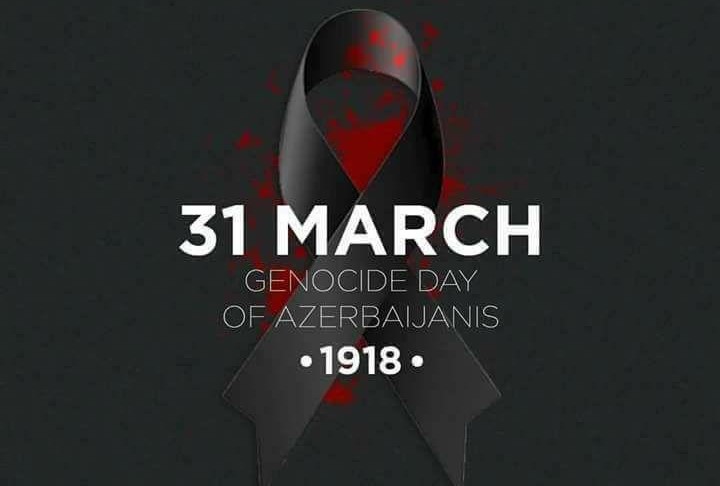Azerbaijan commemorates anniversary of 1918 Genocide today

Baku, The Gulf ObserveR: 105 years have passed since the Armenian Dashnaks committed the act of genocide against Azerbaijanis together with the Bolsheviks.
The tragedies of the Azerbaijani people in the region started with the division of the Azerbaijani people and their historical lands under the Treaty of Gulistan (1813) and the Treaty of Turkmenchay (1828), which was followed by the process of expropriation of these lands. In a short period of time, Armenians were resettled en masse to the lands of Azerbaijan. Inspired by the dream of creating a “Great Armenia”, Armenian usurpers carried out a series of mass massacres against Azerbaijanis.
The bloodiest of these events occurred on March 31, 1918. Taking advantage of the February and October 1917 coups in Russia, the Armenians managed to implement their smeary plans under the Bolshevik flag. From March 1918, the Baku commune, under the guise of a struggle against counter-revolutionary elements, began to implement their nefarious plans to clear the Baku province of Azerbaijanis.
The massacre that started in Baku on 30 March 1918 resulted in the deaths of 20,000 civilians, including women, children, and elderly people. During the massacre that lasted until April 2, Armenian Bolsheviks led by Stepan Shaumian killed thousands of people, burnt Muslim shrines, and confiscated the 400-million-manat estate of Baku residents. Tezepir Mosque was bombed, and one of the magnificent architectural buildings – Ismailiyyeh was burnt.
The policy of genocide against Azerbaijanis was not limited to only Baku. On March 31, Armenian Dashnaks killed 8,027 Azerbaijanis, including 2,560 women and 1,277 children in 53 villages in the Shamakhi region. Over 16,000 civilians were murdered in 162 villages of the Guba district. Armenian Dashnaks burnt thousands of villages in Lankaran, Mughan, and Karabakh, killing thousands of people. The Special Investigation Commission, set by the Azerbaijani Democratic Republic on 15 July 1918, collected plenty of documents and submitted them to the government. In 1919 the Azerbaijani Parliament declared March 31 the Day of Genocide of Azerbaijanis. Though this bloody day was forgotten during the Soviet period, a series of investigations were carried out into the crimes committed on 31 March 1918, and numerous books were published after Azerbaijan gained its independence.
On March 26, 1998, President Heydar Aliyev signed a decree declaring March 31 as the “Day of Genocide of Azerbaijanis”.
Every year on March 31, events and conferences are held in various countries to commemorate the Day of Genocide of Azerbaijanis.


